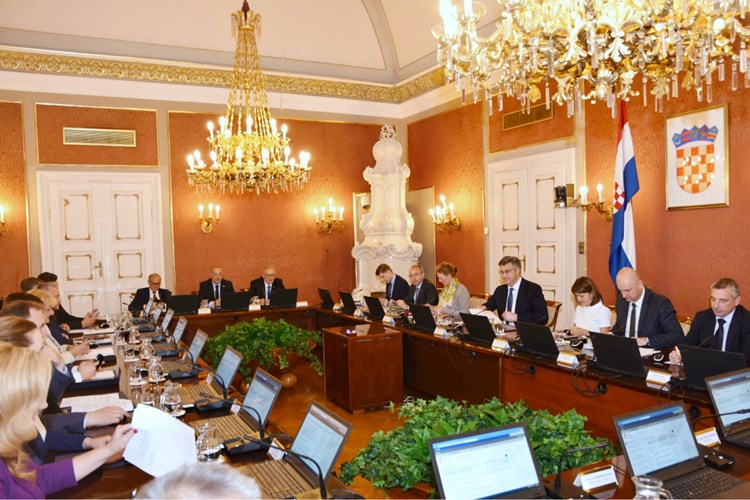- Published: 30.05.2018.
Government adopts public debt management strategy until 2020
The Croatian government on Wednesday adopted a new public debt management strategy for the next three years, under which the public debt to GDP ratio is expected to be reduced to below 70 percent by 2020.
Croatia's public debt reached its peak in 2015, with a debt to GDP ratio of 86.7 percent. At the end of 2017, public debt stood at HRK 283.3 billion, with the debt to GDP ratio falling to 78 percent, its lowest point since 2012.
Under the Convergence Programme for 2018-2021, the general government budget deficit is expected to reach 0.5 percent of GDP in 2018 and 0.4 percent in 2019 before breaking even in 2020.
The public debt to GDP ratio is forecast to further decline by 3 percentage points to 75.1 percent in 2018, to 72.1 percent in 2019 and to 69.1 percent in 2020. That will meet the government's basic strategic goal to reduce the debt to GDP ratio by more than 10 percentage points by the end of 2020, and the government intends to reduce it more than planned, according to the public debt management strategy.
Finance Minister Zdravko Maric said that the focus of the strategy would be on improving the institutional framework, reducing the foreign currency and interest rate risks and improving the transparency of debt statistics and the time frame.
Maric recalled that the government had managed to reduce the budget deficit to 0.9 percent of GDP in 2016 and that for the first time in its recent history Croatia had recorded a general government budget surplus of 0.8 percent in 2017.
"That is certainly one of the main reasons why the public debt has continued to fall for the second consecutive year, by a total of some six percentage points, to 78 percent. At the same time, that was also one of the main reasons why Croatia came out of the excessive deficit procedure and why two rating agencies increased its credit rating for the first time since 2004," Maric said.
Maric said that the government would continue along this path and would do everything in its power to ensure that the cost of public debt was as low as possible. "It should also be noted that in the last two years the costs of interest on Croatian public debt have been reduced by 2 billion kuna or 15 percent, from 12 billion to under 10 billion kuna. This amount does not include the restructuring of motorways, and at least 400 million kuna will be saved on interest annually," he added.
Also at its meeting on Wednesday, the government sent to parliament a bill on state aid for research and development projects to provide support to research, development and innovation companies in the form of tax relief.
The Minister of Economy, Entrepreneurship and Crafts, Darko Horvat, said that the main goal of the bill was to increase private-sector investment in research and development so that Croatia could reach the goal of investing 1.4 percent of GDP in research and development by 2020, to increase the number of businesses that invest in research and development, and to promote cooperation between businesses and scientific organisations on research and development projects.
Croatian private and public companies invest less than 1 percent of GDP in research and development projects, which puts Croatia at the lower end of the EU ranking. The EU average is above 2 percent of GDP.
The government also sent to parliament the Croatian Chamber of Agriculture (HPK) Bill, which aims to increase the influence of this institution in representing the interests of farmers, especially small family farms.
The government decided to establish a task force for negotiations on the EU multiannual financial framework for 2021-2027. This will be the first time for Croatia as the newest EU member to participate in the entire process of negotiation on the future EU budget.
The government on Wednesday adopted a proposed strategic partnership model with the City of Zagreb for the Institute of Immunology (IZ), with Prime Minister Andrej Plenkovic saying he believed that this model would launch production and maintain the institute's sustainability.
Presenting the model, Ministry of Health state secretary Zeljko Plazonic said that the partnership entails equal shares held bythe state and the City of Zagreb and that this will enable production to be launched and for the IZ to continue operating, which is of strategic importance for Croatia and the health of its citizens.
The government gave the Ministries of State Assets; Health; Economy, Entrepreneurship and Crafts; and Finance 30 days to prepare relevant documents for adoption.
The Health Ministry was also instructed to recommend, within 30 days, the adoption of a national plan for the supply of plasma derivatives.
Text: Hina
